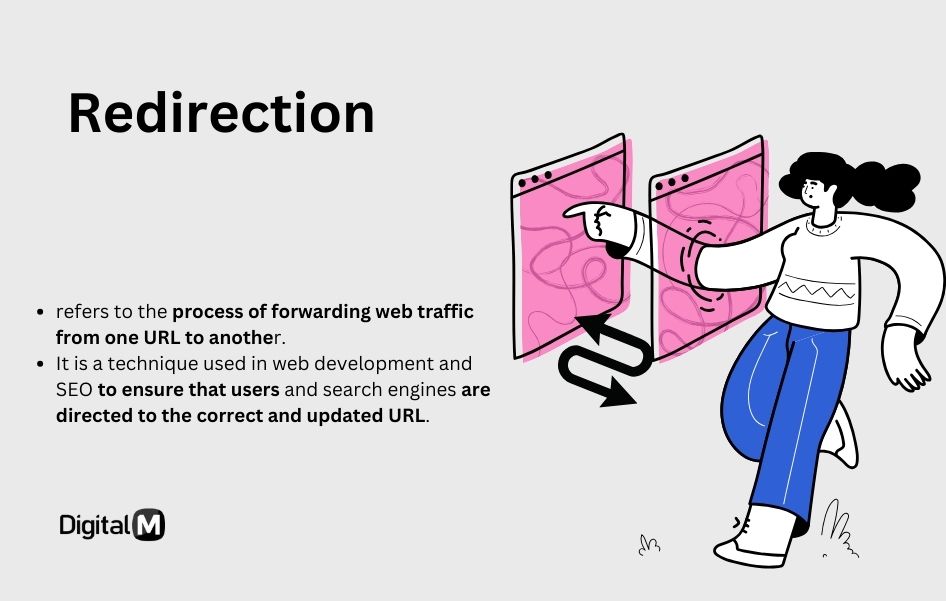Redirection
Redirection refers to the process of forwarding web traffic from one URL to another. It is a technique used in web development and SEO to ensure that users and search engines are directed to the correct and updated URL.
Redirection is like setting up a signpost that guides people from one location to another. It ensures that when someone tries to access a specific web address, they are automatically sent to a different one.

Key Points:
URL Change: Redirection is commonly used when a website changes its structure, domain, or when specific pages are moved to new locations.
HTTP Status Codes: Redirection is accompanied by HTTP status codes, indicating whether the redirection is temporary, permanent, or for other purposes.
Types of Redirection:
301 Moved Permanently: Indicates a permanent redirection, commonly used when a page or entire website has moved to a new URL. Search engines transfer the ranking from the old to the new URL.
302 Found (Temporary Redirect): Indicates a temporary redirection. Search engines may continue to index the original URL.
307 Temporary Redirect: Similar to 302, indicating a temporary redirection.
Meta Refresh: A method that uses HTML meta tags to automatically redirect to another URL after a specified time.
SEO Considerations:
Properly implementing redirection is crucial for SEO to ensure that search engines understand the changes and transfer the ranking value to the new URL.
Common Use Cases:
Domain Change: When a website changes its domain name.
URL Restructuring: When the structure of a website is updated, and page URLs change.
Content Moves: When specific content is moved to a different location on the same website or to a different domain.
Example:
If a website previously had a page at “example.com/old-page” and it’s moved to a new URL, a redirection (possibly a 301 redirect) would be set up to automatically send visitors to “example.com/new-page.”
Why it Matters:
User Experience: Redirection ensures that users are seamlessly directed to the correct page or website, preventing them from encountering broken links.
SEO Impact: Proper redirection helps in maintaining and transferring the SEO value (ranking and authority) from the old URL to the new one.
Website Maintenance: Redirection is a crucial tool during website updates, redesigns, or restructuring to prevent disruptions in user access and search engine indexing.
In summary, redirection is the process of automatically forwarding web traffic from one URL to another. It is commonly used during website changes, and proper implementation is crucial for maintaining a positive user experience and ensuring SEO continuity.

